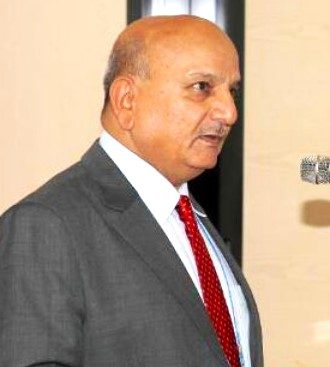
By Zahid Karani
On July 26, 2024, the Central Election Commission of the Republic of Uzbekistan convened a pivotal meeting that marked the official launch of preparations for the forthcoming elections. This significant event was centered around the meticulous planning and execution required for the elections to the Legislative Chamber of the Oliy Majlis and the Councils of People’s Deputies, which are scheduled to be held on October 27, 2024. This date aligns with the constitutional mandate set forth in Article 128, which dictates that such elections should occur on the first Sunday of the third ten-day period of October in the year the term expires.
The upcoming elections are poised to be a historic departure from previous practices, reflecting a profound shift in Uzbekistan’s socio-political landscape. The Central Election Commission’s meeting highlighted several groundbreaking features of the electoral process. For the first time, the elections for the Legislative Chamber of the Oliy Majlis will employ a mixed electoral system, blending majoritarian and proportional methods. Under this new system, seventy-five deputies will be elected directly through majoritarian votes, while the remaining seventy-five will be chosen based on the proportional representation of political parties.
This dual approach aims to enhance both individual candidate representation and party-based electoral fairness. A major advancement in this electoral cycle is the comprehensive digitization of election commissions’ activities. The full implementation of the “E-Saylov” information system is set to transform the electoral process by significantly reducing bureaucracy, expediting document handling, and ensuring greater efficiency. This system will facilitate around 60 types of electronic interactions among election commissions, candidates, observers, and the media, thereby modernizing the electoral infrastructure.
Recent updates to the election laws reflect a strong commitment to democratic standards. Among the notable changes, political parties are now required to field at least 40% women candidates for deputy positions. Furthermore, the system mandates that a candidate must secure a relative majority of votes to be elected, simplifying the process by eliminating the need for repeat votes if a candidate has the most votes in their district. The elections are set against a backdrop of strengthened parliamentarianism and local governance, as stipulated by the Updated Constitution. The absolute powers of the Legislative Chamber have been increased from 5 to 12, and those of the Senate from 12 to 18.
The expanded oversight functions of the parliament will now encompass executive, judicial, law enforcement, and special services. The abolition of the hokims and the transfer of their powers to local Councils represent a significant decentralization of authority, aimed at enhancing the role of local representative bodies. The Central Election Commission’s meeting underscored the significance of these elections as a crucial step in Uzbekistan’s democratic development. The elections will see the selection of 150 deputies to the Legislative Chamber, 65 members to the Senate, 65 deputies to the Jokargy Kenes of the Republic of Karakalpakstan, and deputies to 208 district (city) Councils across the regions and Tashkent city.
With approximately 30,000 candidates and nearly 90,000 trusted representatives expected to participate, the scale of the electoral process is vast. Additionally, over 120,000 election commission members and more than 70,000 citizens and international observers are anticipated to be involved. In emphasizing the importance of broad citizen engagement, the Central Election Commission has adopted the slogan “My Choice – My Prosperous Homeland” for the elections. The “E-Saylov” system will be instrumental in providing transparency and accessibility, offering statistical data on voters, polling stations, and candidate information, along with interactive maps detailing candidate biographies.
Political parties, as outlined by Article 37 of the Election Code, must be registered by the Ministry of Justice at least four months before the election campaign begins and collect a minimum of 40,000 signatures to participate. The Central Election Commission has also approved a detailed calendar plan to ensure that all election activities are executed within the legal timelines, reaffirming its role as an impartial and independent constitutional body committed to upholding national and international election standards.
Uzbekistan’s forthcoming elections represent a significant milestone in the nation’s democratic evolution. The combination of innovative electoral systems, technological advancements, and legislative reforms reflects a determined effort to enhance transparency, inclusivity, and efficiency in the electoral process. As Uzbekistan embarks on this new chapter, the eyes of both national and international observers will be keenly focused on the successful implementation of these ambitious reforms.



